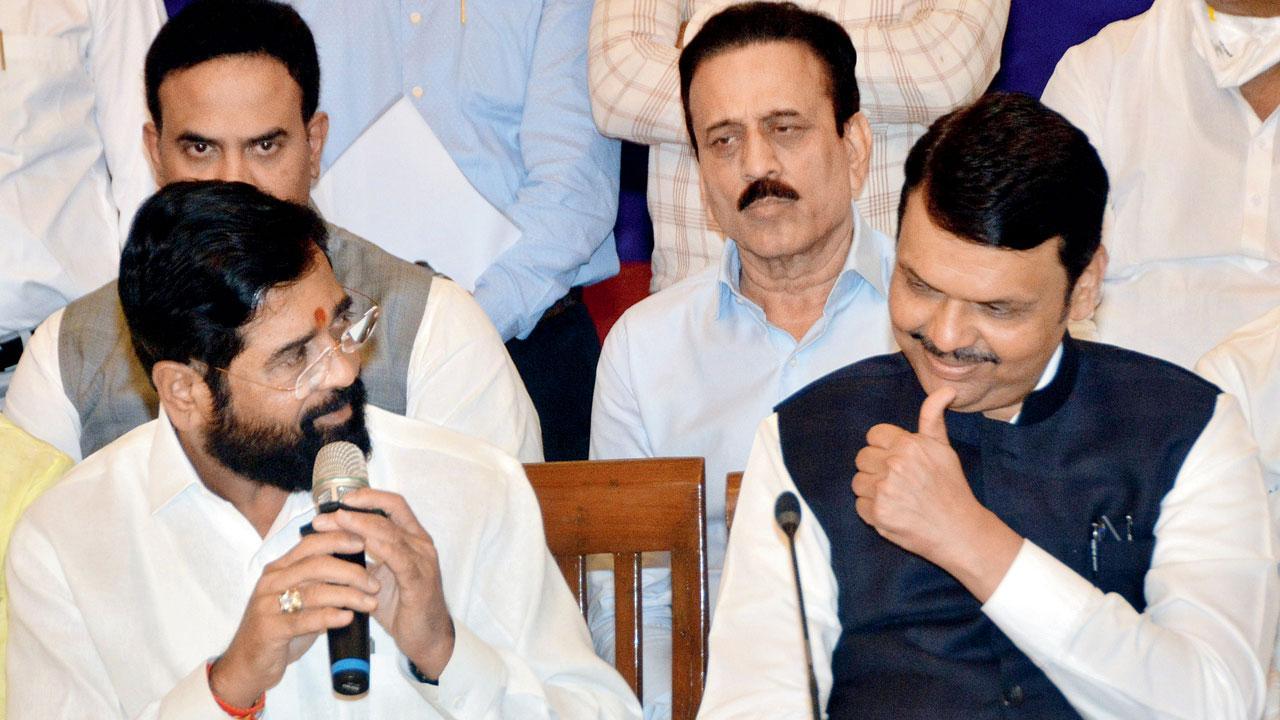The rollback is expected to boost the BJP’s mission of dethroning the Uddhav Thackeray Sena from the BMC

Eknath Shinde and Devendra Fadnavis. File pic
The Eknath Shinde-led state cabinet on Wednesday reversed the previous government’s decision of increasing Mumbai’s electoral wards to 236. In the forthcoming election, the city will elect 227 representatives, which was the total seats in 2017 polls.
ADVERTISEMENT
The decision came after the demands by the Congress and the BJP, which alleged that the delimitation was carried out to benefit the Shiv Sena. Similarly, the lower and upper limits of the number of representatives have been decided for other urban and rural local bodies, but the methodology would be based on the population. The rollback is expected to boost the BJP’s mission of dethroning the Uddhav Thackeray Sena from the BMC.
The BJP had come very close to the Sena with 84 seats in 2017, short of just two seats. The BJP’s rise was by a whopping 51 per cent (from 31 seats in 2012 to 82 seats), while Sena’s was by 9 per cent. The two parties, then partners in the state government, had reached an understanding, with the Sena getting to keep the BMC in exchange of support to the Mantralaya formation. The dynamics are set to change yet again with a split in the Sena.
However, the big question is how much would the scrapping of delimitation exercise be beneficial to the Congress that had won 31 seats; 21 per cent less than in 2012. Congress leader Milind Deora, who had raised a demand before deputy CM Devendra Fadnavis on Tuesday, said it was a big victory for his party and the people of Mumbai.
The restoration of the old order would need the BMC administration and state election body to rework electoral rolls, redesign reservations for women and backward classes.
 Subscribe today by clicking the link and stay updated with the latest news!" Click here!
Subscribe today by clicking the link and stay updated with the latest news!" Click here!







